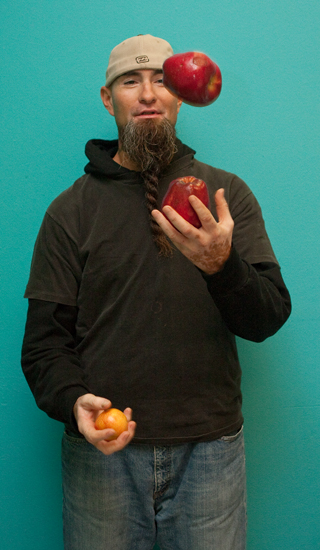Valerie Chao met the former English teacher while he was living at a homeless shelter.
He was writing a book about a long-lost love.
The fourth-year English and art student said that as the teacher described his story to her, tears welled up in his eyes and she realized his story was actually an autobiography.
“I thought that was really touching,” Chao said. “He seemed really appreciative to be listened to and heard.”
Through simple conversations like these, the student volunteers of the Hunger Project at UCLA spend their Tuesday nights at a shelter in West Los Angeles that is run by People Assisting the Homeless, a citywide charitable organization.
The interaction between volunteers and residents advance the quality of living for those at the shelter, said Ramona Holland, program director at PATH’s Cotner Avenue location.
“It makes it nice because you’re not just serving them a meal,” she said. “You’re communicating with them. … It boosts their morale.”
The club helps to prepare and serve food to the residents and assists the shelter staff with job training programs, including mock interviews. The club also has a health clinic site where students volunteer with homeless people on Skid Row.
PATH is a 90-day transitional program in which men, women and families live at the facility while they work on finding permanent housing and securing a full-time job, Holland said. The program sets a goal for its residents to find employment within 30 days of arriving at the facility.
Greg Hart, 41, has lived at the shelter since Thursday.
“I can get something going (here), instead of going from motel to motel and wasting a lot of money,” Hart said. “I couldn’t do that living outside. I’m not an outside kind of guy.”
He said he saw a lot of drugs and violence that seemed commonplace to the people on the street.
“Just the two days I did was the hardest days of my life,” he said. “And for someone who wants that … I don’t understand their logic.”
During their stay at the PATH shelter, the shelter staff members work to empower the lives of its residents, Holland said.
“It’s a place that will keep you warm and safe,” she said. “You don’t have to worry about the outside elements. … It makes quite the difference.”
In addition to food and shelter, the program offers a number of workshops and services to prepare residents for the workplace, including employment development, motivational and life skills workshops.
The shelter also provides residents with bus tokens to get to work and referrals to medical services and psychological counseling.
Many of the residents, Holland said, come from a background of drug or alcohol abuse.
To gain access to the program, residents must be referred from an outside social service agency such as Ocean Park Community Center, the access center that refers much of its clients. Rules are then explained to prospective residents that they must live under at the shelter, including a curfew. Residents must be motivated, able to work and willing to stay on point during the short program, Holland said.
While students volunteering at the shelter often work in the kitchen, the club’s real importance lies in connecting and finding things in common with the residents while eating dinner with them, said Chao, one of Hunger Project at UCLA’s three executive directors.
“It’s not a soup kitchen type deal,” she said. “We want to get to know the residents.”
She said the program moves people through very quickly.
“You’ll get close to some of them, but then they’re gone,” Chao said. “That’s kind of sad but it’s a good thing.”
Kevin Du, a second-year electrical engineering student, volunteered with PATH through the Hunger Project at UCLA last quarter and continued to do so this quarter.
“You’re in a position that you’re able to help people that are less fortunate,” Du said. “So why not do it? What else are you going to do that would be better for everyone in the long run, instead of wasting your time doing your own thing?”
Many of the residents referred to PATH as a blessing.
While donning a UCLA hat and UCLA basketball sweatshirt, Bruce Weberg, 55, described a series of accidents that befell him near the end of 2008.
Within four weeks, he suffered two broken hips in two separate accidents. He lost his job, and then his apartment, because he could no longer work as a book salesman.
“I’m lucky I can walk,” Weberg said. “I basically lost everything.”
Almost at the end of his three-month stay at PATH, he said he plans to continue his search for a job.
“I’m really grateful for (PATH),” Weberg said. “It’s given me the tools while I recover to get back on my feet (and) get my confidence back.”
